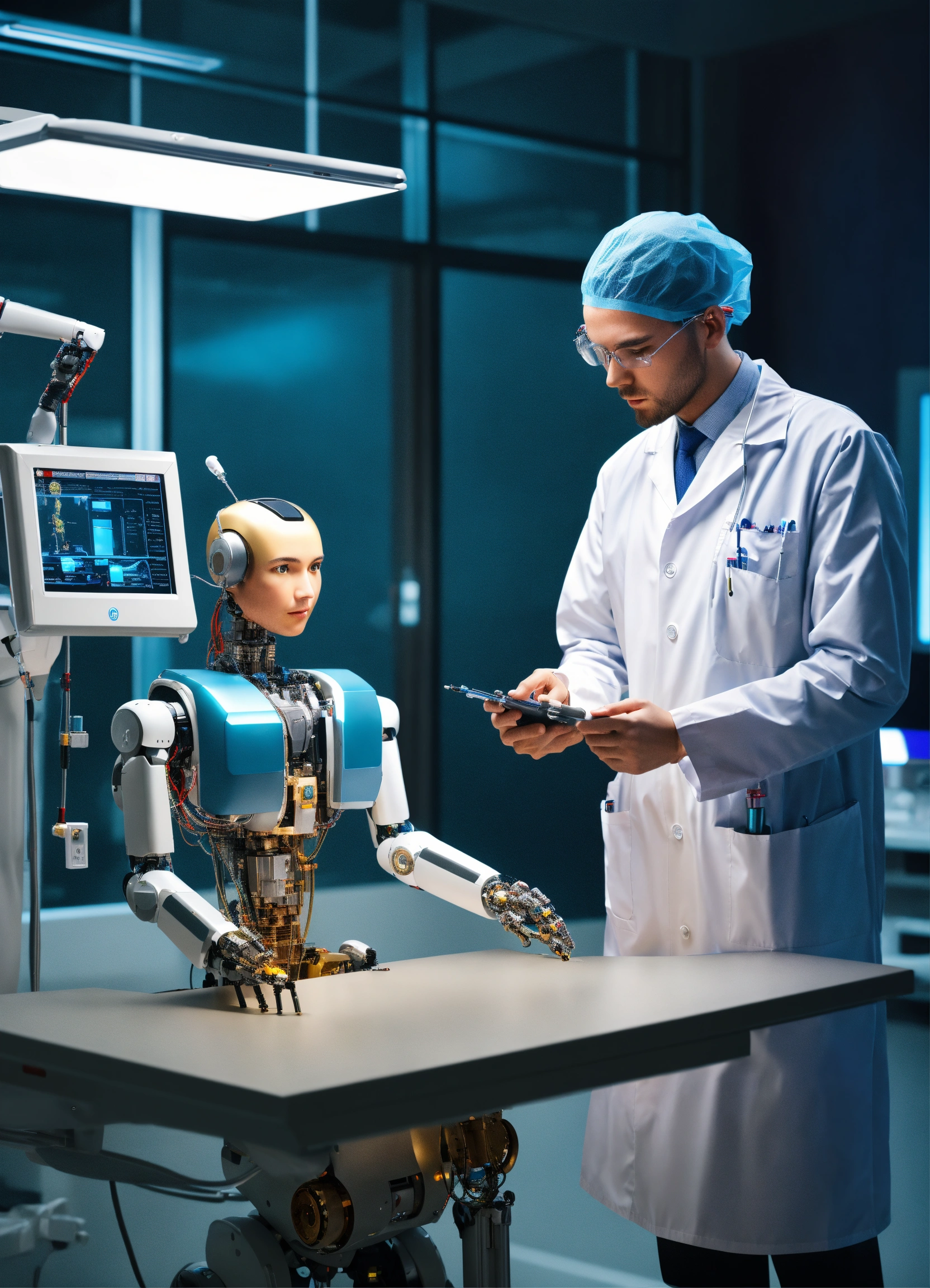5 Ways AI is Shaping the Future of Healthcare
Artificial Intelligence (AI) is rapidly transforming various industries, and healthcare is no exception. With its ability to analyze vast amounts of data, learn from patterns, and make intelligent decisions, AI is poised to revolutionize the way we deliver and receive medical care. In this article, we’ll explore five key ways in which AI is shaping the future of healthcare.

1. Improving Diagnosis and Treatment
One of the most significant impacts of AI on healthcare is its ability to improve diagnosis and treatment. AI-powered algorithms can analyze medical images, such as X-rays, MRIs, and CT scans, with greater accuracy than human experts. This can help doctors detect diseases earlier and recommend more effective treatments.
2. Personalized Medicine
AI can enable personalized medicine by analyzing a patient’s genetic makeup, medical history, and lifestyle factors to develop tailored treatment plans. This approach can improve outcomes and reduce the risk of adverse side effects.
3. Drug Discovery and Development
AI is accelerating drug discovery and development by analyzing vast datasets to identify potential drug targets and predict the efficacy of new compounds. This can reduce the time and cost of bringing new drugs to market.
4. Remote Patient Monitoring
AI-powered devices can monitor patients’ vital signs and symptoms from the comfort of their homes. This can help to prevent hospitalizations, improve patient outcomes, and reduce costs.
5. Administrative Efficiency
AI can streamline administrative tasks includes scheduling appointments, managing medical records, and billing. This can free up healthcare providers to focus on patient care and improve overall efficiency.
Specific AI Applications in Healthcare
Robotic Surgery: AI-powered robotic surgery systems are becoming increasingly common in operating rooms. These systems can perform complex procedures with greater precision and accuracy than traditional surgical techniques.
Virtual Health Assistants: AI-powered virtual health assistants can provide patients with personalized health advice, answer medical questions, and schedule appointments.
AI-Powered Medical Devices: AI is being integrated into a variety of medical devices, such as pacemakers, insulin pumps, and hearing aids. These devices can monitor patients’ health, adjust treatments, and improve overall outcomes.
Challenges and Ethical Considerations in AI Healthcare
Data Privacy and Security: It raises concerns about data privacy and security. Healthcare organizations must implement robust measures to protect patient data from unauthorized access.
Bias in AI Algorithms: AI algorithms can be biased if they are trained on biased data. This can lead to unfair or discriminatory outcomes in healthcare.
Job Displacement: The increasing use of AI in healthcare may lead to job displacement for healthcare professionals. However, it is also expected to create new job opportunities in areas such as AI development and data science.
Future Trends in AI Healthcare
AI-Powered Drug Discovery: AI is expected to play a major role in the discovery of new drugs. By analyzing vast amounts of data, AI can identify potential drug targets and accelerate the drug development process.
AI-Enabled Early Disease Detection: AI-powered tools can be used to detect diseases at an earlier stage, when they are often easier to treat.
AI-Driven Healthcare Systems: In the future, AI may be used to create fully integrated healthcare systems that can optimize resource allocation, improve patient outcomes, and reduce costs.
Conclusion
AI is poised to revolutionize the healthcare industry by improving diagnosis, treatment, and patient outcomes. As AI technology continues to advance, we can expect to see even more innovative applications.
Before you dive back into the vast ocean of the web, take a moment to anchor here! ⚓ If this post resonated with you, light up the comments section with your thoughts, and spread the energy by liking and sharing. 🚀 Want to be part of our vibrant community? Hit that subscribe button and join our tribe on Facebook. Let’s continue this journey together. 🌍✨
FAQs
Q: What is AI, and how is it being used in healthcare?
A: AI, or Artificial Intelligence, refers to systems that can perform tasks that typically require human intelligence. AI is being used for tasks such as diagnosing diseases, developing new treatments, and improving patient care.
Q: What are the benefits of using AI in healthcare?
A: The benefits of using AI in include improving accuracy and efficiency, reducing costs, and providing personalized care.
Q: What are the potential risks or challenges of using AI in healthcare?
A: Potential risks and challenges include data privacy concerns, bias in AI algorithms, and the potential for job displacement.
